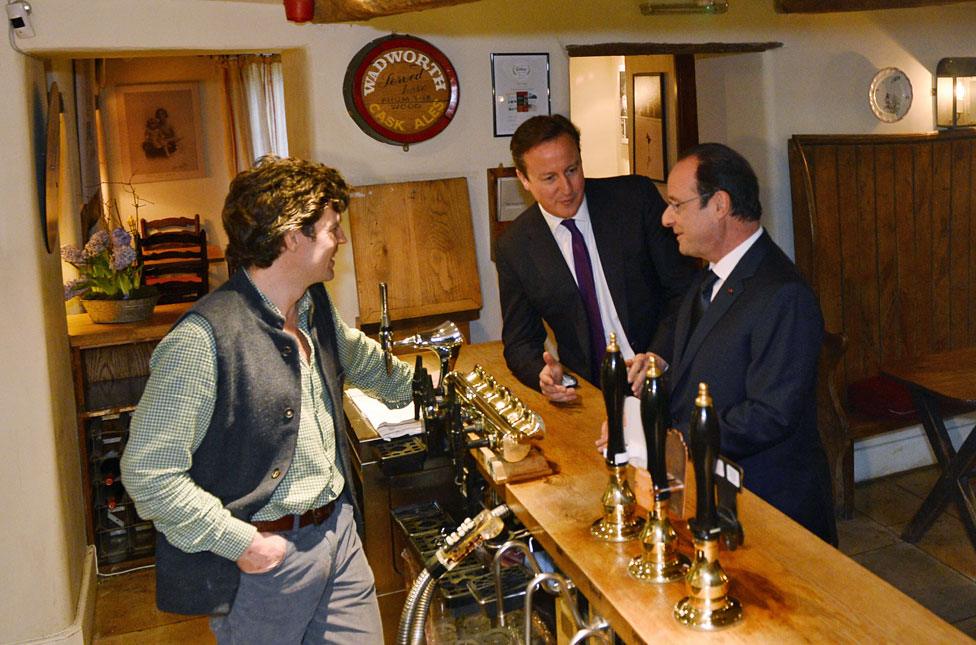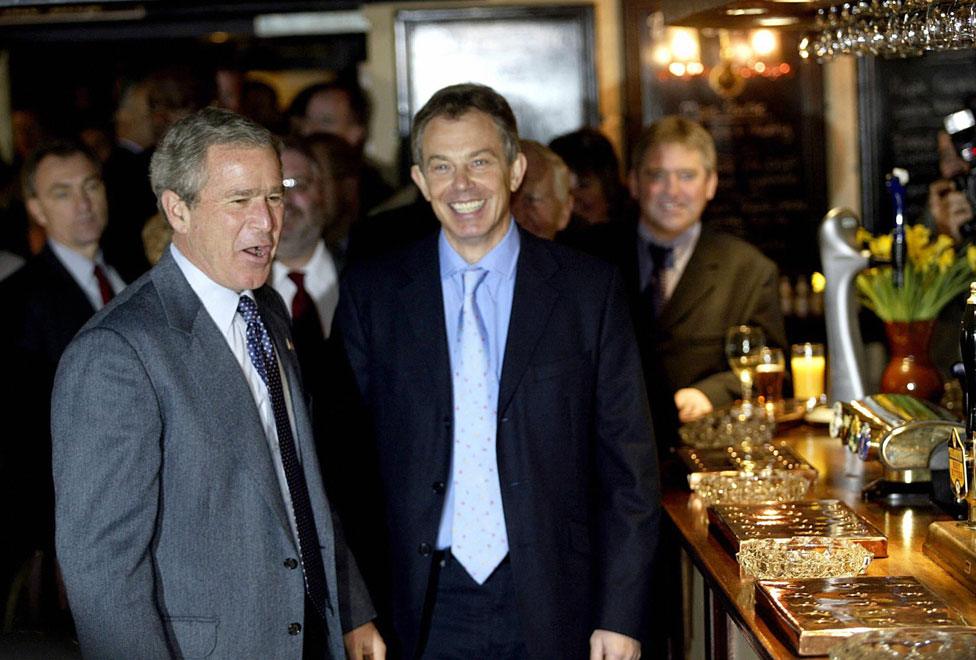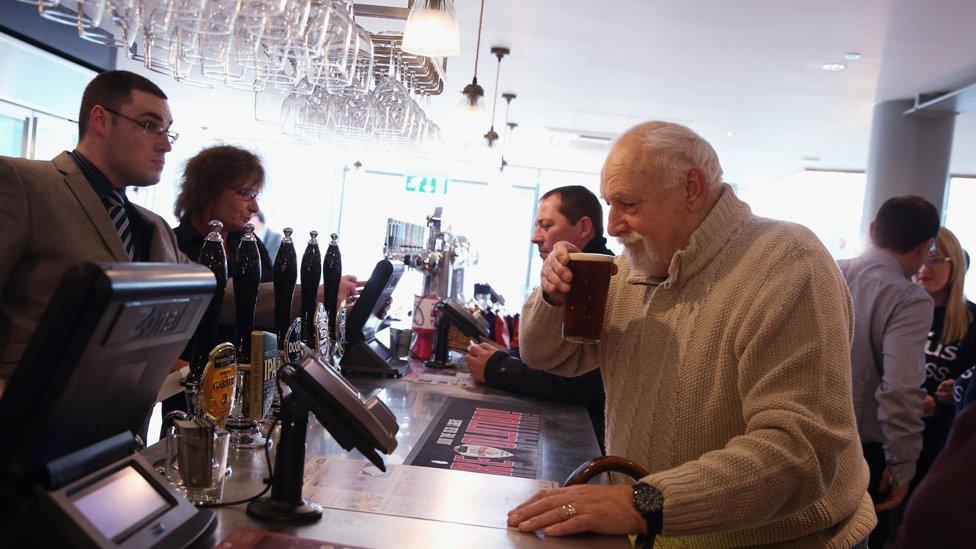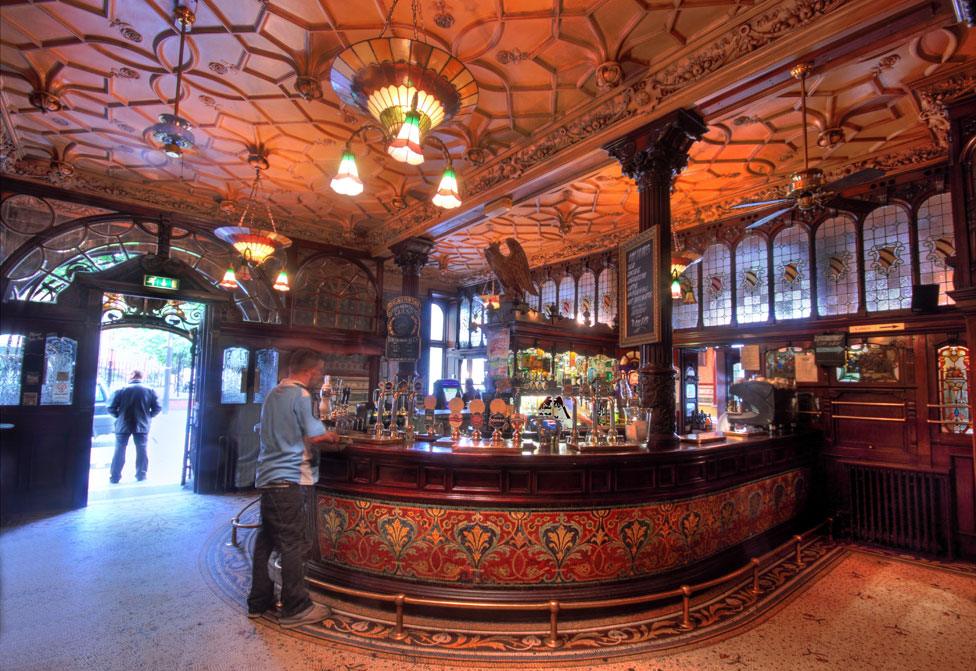What sort of British pub should foreign leaders be shown?
- Published

China's president is expected to visit a British pub. World leaders on trips to the UK tend to go to traditional country hostelries. What other types of bar could he drink in?
When global leaders pay the UK a visit, they are invariably taken down the pub. A very specific type of pub.
A saloon bar. Somewhere in the countryside. Brass horseshoes on the wall. An open fire. The sort of place where regulars (all of whom have their own tankards) use words like "methinks" and "barkeep".
It was thus when David Cameron took Francois Hollande to the Swan Inn in Swinbrook, and when Tony Blair took George W Bush, external and Lionel Jospin to the Dun Cow in Sedgefield. China's President Xi Jinping - who has requested, external a fish and chip meal during his visit to the UK - can surely expect similar treatment.

Tony Blair chose The Dun Cow for both George W Bush and Lionel Jospin
But although pubs of this kind are widely idealised, not all Britons are fortunate enough to have George Orwell's fictitious Moon Under Water, external as their local.
"Most British pubs are deeply average," says beer writer Pete Brown. "There's the usual range of beer, the staff look a bit bored, the TV is on with the sound turned down, chart music is blaring."
In the interests of authenticity, Mr Xi could go a sports bar and revel in the spectacle of Stoke v Watford unfolding on a flat-screen TV. Or nurse a Guinness to the strains of The Pogues in a faux-heritage Irish pub, perhaps.
Or he could go to a branch of JD Wetherspoon. These are, after all, hugely popular, with more than 900 branches and growing, and - for better or worse - encapsulate the pub-going experience for millions of Britons. Here, Mr Xi would have no problem sourcing that plate of fish and chips - though if he were in the mood for a bargain, Thursday is Curry Club night.

What about a Wetherspoon's?
There's a limit to how far downmarket he might want to go in order to burnish his man-of-the-people credentials. President Xi would do well to heed the adage: "Never drink in a pub with a flat roof" - or indeed anything that could be described as a "dive bar".
Instead, Brown suggests he should pay a visit to one of the great Victorian "gin palaces" found in many cities - ornately decorated pubs like the Philharmonic Dining Rooms in Liverpool, whose roseate marble urinals are a tourist attraction in themselves, or The Salisbury on north London's Green Lanes.

The Philharmonic Dining Rooms in Liverpool, may offer something more impressive
There's also the option of gastropub, that foodie re-imagining of the traditional local in which the wallpaper is Farrow & Ball and no chip is served outwith a little metal bucket.
Alternatively, if craft beer is to his taste, a hipster bar - the kind of place where the ale is hoppy, the beards are voluminous and the soundtrack is a Boards of Canada white label 12" that you're too mainstream to have ever heard before.
Pubs are closing at a rate of 25 a week, says Chris Wisson, senior drinks analyst with market researchers Mintel, with the big "pubco" chains especially badly hit. It's a trend that was accelerated as people's wallets were squeezed in the wake of the economic downturn. "The same number of people are going to the pub but they go less than they used to and they drink less by volume," says Wisson.
Mr Xi could, then follow the example of millions of Britons and stay at home with a six-pack of Kronenbourg purchased from a branch of Tesco. One that stands where a pub used to be.
Subscribe to the BBC News Magazine's email newsletter to get articles sent to your inbox.